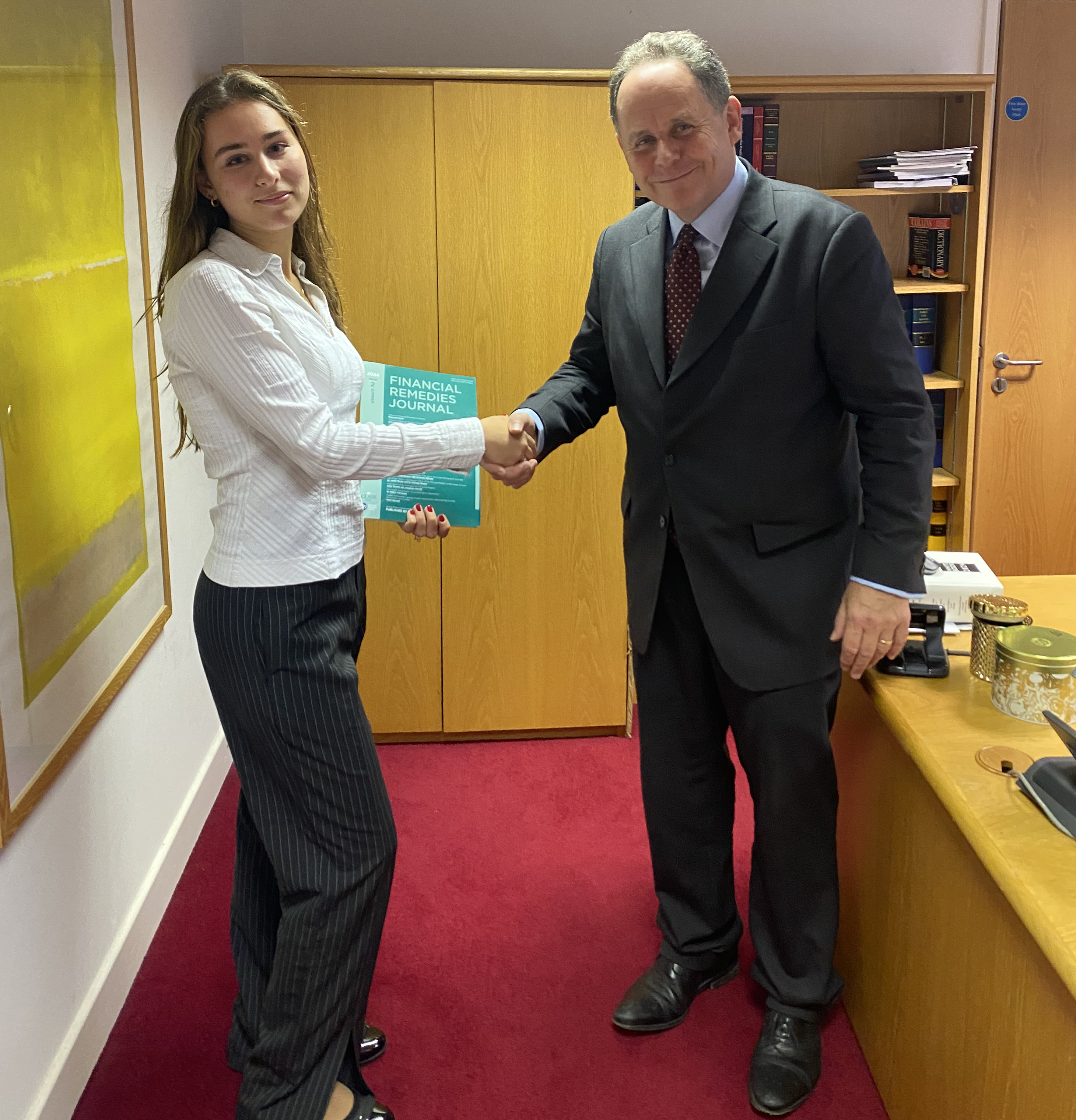
Chair's Column (Winter 2024)
Published: 22/11/2024 06:00

Duxbury
For more than three decades the Duxbury tables have held a strong position in the determination of outcomes in financial remedies cases involving the capitalisation of maintenance obligations. In the Spring 2023 edition of the FRJ, we published ‘Looking Back at Duxbury 30 Years On’ by Michael Allum et al. This article reflected on the outcomes of some cases in which the court had used Duxbury assumptions and concluded that a fresh look was needed. It recognised the ‘significant benefits associated with having a universal formula’ but argued ‘that the process by which the calculations are determined could be improved’ and suggested a greater degree of transparency in the methodology of determination. At least in part spurred on by this article, a review process was duly set up, led by Lewis Marks KC, and incorporating a distinguished group of experts in this area, including Michael Allum in recognition of his contribution to the subject. The impressive interim report of this group has recommended some very significant changes to the operation of the Duxbury tables. The mathematics should now include an estimate of management charges. The computation should not default to the life expectancy of the recipient, but instead to the likely duration of the maintenance obligation being capitalised. Nor should it default to the inclusion of the state pension. There should no longer be any distinction between male and female recipients. These welcome changes, if adopted in the final report, will bring the Duxbury tables up to date and seem likely to strengthen their position of importance in cases where these issues arise.
Non-court dispute resolution
In May 2024 the Pre-Action Protocol annexed to FPR 2010 PD 9A was significantly amended. This made clear the obligation for couples in almost all cases, before making any application to the court, to attend at least one form of NCDR. There are options for the parties as to which method to try – it may be mediation, arbitration, a private FDR, the collaborative process, the single lawyer scheme or even a round table meeting. Paragraph 15 of the Protocol warned parties that a failure to comply with this might cause the court to decline to commence the court timetable or to suspend it. It may be that these new provisions have not changed practice as much as they should have done, and two articles in this issue of the FRJ – ‘Early Reflections on Pre-Application Protocol – Seismic Shift or Damp Squib?’ by Harry Gates and Samantha Woodham and ‘Non-Court Dispute Resolution and the New Protocol – Don’t Look a Gift Horse in the Mouth…’ by Katharine Landells – discuss why this may be the case. It may be that the best way of moving this forward would be for judges and practitioners to find a way of identifying very shortly after a Form A is issued (and before the often combative and expensive early stages of a court battle have taken place) that no NCDR has been pursued as, if this is only discovered at the First Appointment, there may be a tendency of judges to regard it as too late to divert from the court timetable or, as Katharine Landells puts it, ‘judges will find themselves unable to resist the temptation to solve the problem that’s in front of them’.
Procedure and the importance of being aware of, and complying with, rules and guidance
The National Lead Judge of the FRC, Peel J, has taken the lead in promoting the knowledge and implementation of the rules and guidance which govern practice, or should govern practice, in the FRC. In GA v EL [2023] EWFC 187 Peel J said:
‘I have said before on countless occasions, in court and publicly, that breaches of the two Efficiency Statements (one for High Court allocated cases, and one for cases allocated below High Court Level) are wholly unacceptable … I make no apology for speaking out in strong terms on this subject once again. Case management is a vital part of the financial remedies process, and legal representatives have a duty to assist the court in managing the cases efficiently and fairly. If counsel and solicitors are unfamiliar with these basic, essential requirements contained in the two Efficiency Statements (as seems to have been the case here), they should swiftly put that right.’
For practitioners wishing to follow this lead (and surely this is all practitioners!) they could do worse than mastering the excellent summary of the rules and guidance (sourced where appropriate) which has been produced below by Alexander Chandler KC under the title ‘The Winds of Change: Case Management and the Financial Remedies Court’.
A warm welcome to the next generation of financial remedies practitioners
We are delighted to announce the winners of the Financial Remedies Journal’s 2024 Undergraduate Essay Competition. Essays submitted were for the title: ‘Fifty years on, do the financial remedy provisions in the Matrimonial Causes Act 1973 provide fair outcomes?’ Thank you to all participants for their hard work, and many congratulations to Vasilisa Skorokhod and Theo Corbett, whose insightful and thought-provoking essays stood out amongst a number of excellent entries. Their essays have been posted on the FRJ blog and they will be given the opportunity to do some work experience in the financial remedies world.
Edward Hess congratulating Vasilisa Skorokhod, one of our 2024 Undergraduate Essay Competition winners, after a day’s work experience marshalling with him









